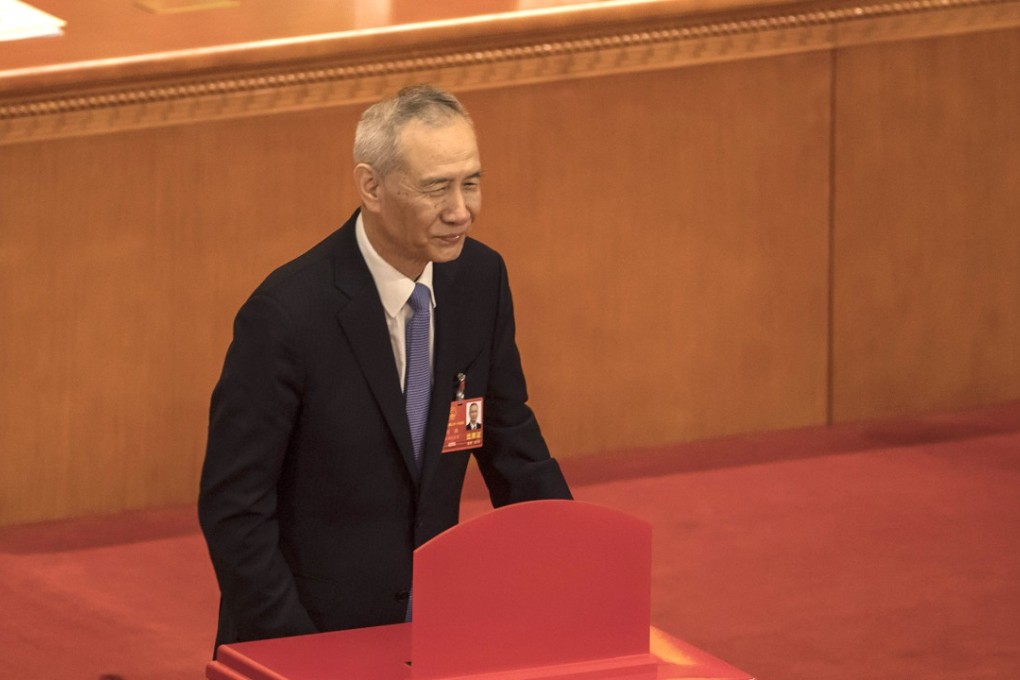Liu He: China’s new one-man debt bomb disposal unit
Liu’s promotion to vice-premier cements his role as Xi Jinping’s chief economic strategist but the job also comes with a heavy responsibility

When an “authoritative person” declared on the front page of Communist Party mouthpiece People’s Daily in May 2016 that the days of high-speed growth were over in China, few doubted the message came right from the top.
President Xi Jinping’s right-hand man, Liu He, 66, then the director of the Office of the Central Leading Group for Financial and Economic Affairs, was widely believed to be the source of the stinging rebuke to then vice-premier Zhang Gaoli’s high-profile claims that 2016 had got off to a “good start”.
Liu was never named but he soon emerged from the shadows as one of the most influential forces in China’s economic policymaking, striding the international stage as the public face of Xi’s economic policy.
His appointment as vice-premier in economic and financial affairs on Monday confirms his position as the mastermind of the president’s economic strategy but also brings with it a heavy responsibility – to put theory into practice to prevent shock waves in the national – and global – economy.
Few could doubt that Liu, 66, is Xi’s most trusted adviser on economic management.
As soon as Xi was named the party’s general secretary in 2012, Liu was promoted as the director of the General Office of the Central Leading Group for Financial and Economic Affairs, the innermost economic policymaking unit directly serving Xi.